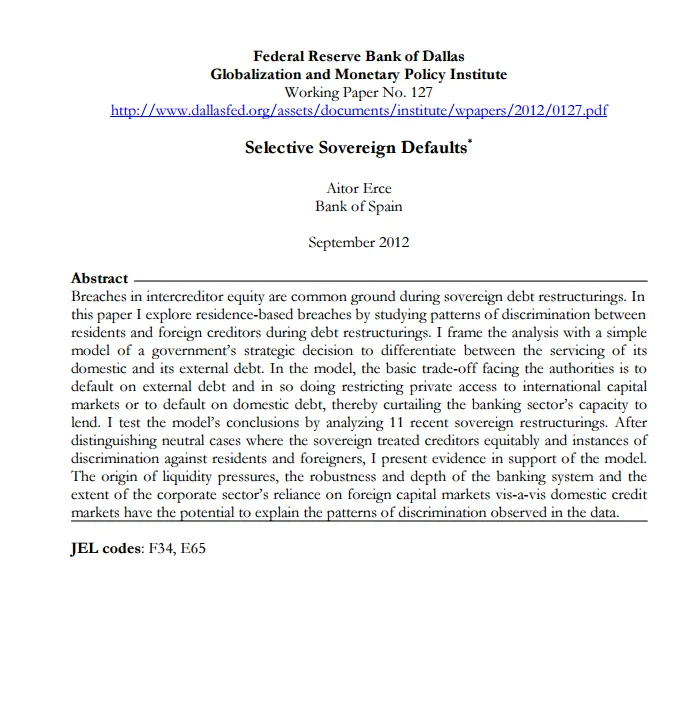Selective Sovereign Defaults

Author: Aitor Erce
Abstract: Breaches in intercreditor equity are common ground during sovereign debt restructurings. In this paper I explore residence-based breaches by studying patterns of discrimination between residents and foreign creditors during debt restructurings. I frame the analysis with a simple model of a government’s strategic decision to differentiate between the servicing of its domestic and its external debt. In the model, the basic trade-off facing the authorities is to default on external debt and in so doing restricting private access to international capital markets or to default on domestic debt, thereby curtailing the banking sector’s capacity to lend. I test the model’s conclusions by analyzing 11 recent sovereign restructurings. After distinguishing neutral cases where the sovereign treated creditors equitably and instances of discrimination against residents and foreigners, I present evidence in support of the model. The origin of liquidity pressures, the robustness and depth of the banking system and the extent of the corporate sector’s reliance on foreign capital markets vis-a-vis domestic credit markets have the potential to explain the patterns of discrimination observed in the data.
JEL codes: F34, E65
Federal Reserve Bank of Dallas, Globalization and Monetary Policy Institute
Working Paper No. 127 (2012)